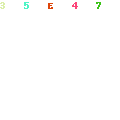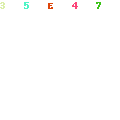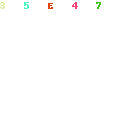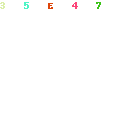Greetings. I'm going to be the book club author of the month in January. I'll be posting a few blog articles to introduce myself. You can also look at my web site for information about me and my books. http://sandynathan.com The following article is from my blog for writers/authors, Your Shelf Life. It's not an academic explanation of Jung's typology, but an interesting and even fun introduction for writers. You can see it on my blog, with the images centered, by hitting the link above. I hope. The photo of me far below is from the olden days, alas. Sandy Nathan

Amore et Psyche––Desire and the soul. Today, we'll talk about psyche, the soul.
Personality type may seem an abstract and unnecessary thing for writers to be concerned about. Shouldn’t we be polishing our prose with our writing groups and editors, instead of worrying about our psychological types?
No. Personality type is something writers must know, in addition to how to construct a killer novel and get it sold. Why?
1. You have a personality type whether you know it or not, and whether you care about it or not.
2. Your personality type is intrinsic to who you are and expresses in your writing, as your writing.
3. Your readers also have personality types. Their reading preferences are shaped by their personality types.
4. The wise writer knows this and adjusts his or her writing style to appeal to as broad a spectrum of reader tastes as possible.
I read Irene Watson’s initial guest blog with great interest. She’s writing about Jungian type. When I ran into Carl Jung’s theory of personality type in graduate school, I was electrified. I recognized it as life changing information. Let me add my two cents to what Irene provided.
How did Jung come up with his theory of personality type? The great Swiss psychiatrist, Carl G. Jung, was puzzled by the radical differences between the ways he and his buddies thought. Who were his buddies? Sigmund Freud and Alfred Adler, giants in the history of psychology, like Jung.
How could three powerful, brilliant, and visionary minds see the world and human personality so differently?
Jung’s typology is his explanation. The theory is quite complex, but it’s practical importance is simple. What’s the bottom line to Jung’s theory?
PEOPLE THINK DIFFERENT.
Yes, I know, Steve Jobs claimed those words for an Apple sales pitch, but it’s true. If we’re going to succeed in the world, we need to REALLY GET THAT PEOPLE LIVE IN DIFFERENT PERCEPTUAL UNIVERSES.
As authors, we must bridge those worlds if we want to reach our readers. We’d better start with knowing which type we are, if we’re going to be marketing our writing to the right audience. Here’s a web site where you can take a test to determine your personality type.

A good reference
What is Jungian Personality Type?

Jung came up with four basic types of personality. Two of these are rational––the thinking and feeling types. By rational, I mean operating according to an internal set of rules. These may be logical (in the thinking type), or based on internal emotional values (the feeling type.)
The other two types, intuitive and sensate, are irrational; they don’t conform to an internal value or thought system. (Each of these types also operate in an introverted or extroverted way. I’ll skip this for brevity.)
Jung said that children can be observed preferring a type early on, perhaps around age five. One child may become an academic success, be praised for it, and develop into a thinking type. Another child may have success in sports and literally run with that––develop as a sensate.
Everyone has all four functions, even it they prefer one. We have the four functions because we need them to survive as human beings. We need to be able to think logically, as well as know how we feel emotionally, and know the emotional states of people around us. We must be aware of intuitions and guidance from the larger universe. We have to be able to control our bodies and master the physical world.
Our dominant psychological function acts like a team captain. It’s like our dominant hand––we know how to use it and do use it most. But because we can’t do everything with one hand, we develop our other hand, and the rest of our body.
Similarly, we must develop our non-dominant psychological functions. They provide backup when we need them, like a non-dominant hand. The functions we develop as backups are those on either side of our dominant function on the chart above. A thinker is likely to be a pretty good sensate and intuitive, but clueless about feelings, his own and those of others.
The inferior function is opposite of our primary type. It’s too far from what we do best to really shine. It remains in the shadow, aced out by the big brothers who run the show. The inferior function is sort of like the elbow of the personality. What can you do using one elbow? Still, you need it. You have it.
WHY DO WRITERS NEED TO KNOW THIS? The way we write is influenced by our personality type. Let’s spend some time looking at each type.
THINKING TYPE: Thinking types orientate themselves in the world by thoughts and facts, right and wrong, intellectual models and systems. They operate on principles and logic. These can be wrong––lousy thinking and bad logic––but the thinking type will cling to them. Thinking types have trouble expressing personal feelings and appear relatively cold and unemotional. Historic figures: Sigmund Freud (Jung’s buddy), Franklin D. Roosevelt, Abraham Lincoln, Woodrow Wilson, Albert Einstein, Bill Gates & Richard Nixon. (Thinking can be good or bad. Source: mypersonalityinfo.com) WHAT DO THEY LIKE TO READ? Material that reflects their interests: Logical, fact driven content, intellectual puzzles, maybe intellectual thrillers. Pared down writing with no fluff.

Sigmund Freud, shown here reading the print version of yourshelflife.com,
is a classic thinking type.
SENSATE: Sensates orientate themselves by data from the world around them. They are concerned with power in the highest way: If what’s real to you is the physical world, controlling as much of it as you can makes sense. Practical, realistic, confident, & active. Adaptable. Athletes and sports heroes are likely to be sensates. Historic sensates: Alfred Adler, known for his personality theory stressing “will to power” and one of Jung’s buddies. WHAT DO THEY LIKE TO READ: Stuff about the real world, power, politics, action, sports. Here’s your thriller market.

Alfred Adler
FEELING TYPE: The feeling type orientates himself by emotional responses tied to personal values. The feeling type is in touch with his or her emotional state and very aware of the emotional states of those around him. Interested in people, feelings, love, and passion. They are not hysterics or eruptive fountains of feeling. Feeling types are so skilled at handling their feelings that they may appear cold. WHAT DO THEY READ: This is the women’s lit, chick lit, and romance market. Huge markets. Can also be higher toned literature on feeling/people related themes. Maeve Binchy would fall here.
INTUITIVE TYPE: Intuitives have a vision. They are tuned in to a world beyond the physical and draw strength and comfort from it. They can express their intuitions and visions to others and enlist them as to carry them out. Intuitives are charismatic, charming, interested in people and solving problems of others and the planet. Introverted intuitives can be religious leaders. Extroverted intuitives can be excellent business, picking up on currents of change that others miss. Historic Intuitives: Carl Jung, Jesus Christ, and Adolf Hitler. (The intuitive’s vision doesn’t have to be correct.) I would say that Steve Jobs shows up here, an extroverted intuitive. WHAT DO THEY READ? The Bible and other sacred texts, books about saints and spiritual experience, The Da Vinci Code, spiritually themed material. Stuff about their area of intuition. My books, Numenon & Stepping Off the Edge, are perfect books for intuitives, written by an intuitive.

Carl Jung
Not only do the personality types behave very differently, they WRITE DIFFERENTLY and READ DIFFERENTLY. I’ll try and find or mock up what theses writing styles are like in a later post.
What’s the distribution of these types across the population? This is what’s important for writers.
The link above takes you to a site displaying a distribution of people across the various personality types. I tried to find good numerical data for the typology; this was the best I could do. I’m assuming it’s based on the test results on the site. (The site itself warns that the estimates are not necessarily correct. Not only that, like so many sites I looked at, they’ve changed Jung’s terminology to suit themselves. Swell.)
WHAT DO THE DATA SHOW? The incidence of thinking types (Intellectuals) is only 10% of the surveyed population. Intuitives (Visionaries) make up only 11.5%. Two small, diverse groups making up only 21.5% of the population, thinkers and intuitives represent small market shares. (Caveat: If these two groups read many more books than their share of the population, they may represent a larger market share. So where do we find statistics on book sales by Jungian type to prove or disprove this?)
The combined feeling types and sensates (Protectors & Creators on the linked chart, though Lord knows which is which according to Jung’s terminology) make up a whooping 78.5% of the population. I can’t tell from the site providing the data which are the sensate and feeling types, but if these numbers are anywhere near right, they mean that the LARGEST WRITING MARKETS by a long shot are among sensates & feeling types.
WHAT DOES THIS MEAN TO WRITERS? It means that if you’re a sensate or feeling type, count your lucky stars. A huge market exists in your type, and you’ll be able to write for them easily, because you’re writing for yourself, essentially.
If you’re an intuitive or thinking type, you’re probably looking at a small market if you write the way your personality type indicates. That means you’re going to have to learn to build bridges to the other types to increase your market share and sales. Best to do this by studying this material carefully. What you’ll need to do is inherent in the definition of your type and the types you’re trying to write for: cut it back, fluff it up, subtract or add feelings, put in action. Do what your editor says.
Here’s one example: I was riveted to read Irene Watson’s article on personality type. Why? Because she describes me and my writing perfectly. I am an intuitive.
You’d guess this by the fact that I’ve written a book on spiritual practice and have launched a series about a great native shaman meeting the richest man in the world. (Numenon is an exercise in Jungian typology, which readers may recognize after reading this article. What Jungian types do the main characters represent? [It's also the book club read for January 2012])

Numenon: A Tale of Mysticism & Money. A book written by an intuitive.
So what did Irene Watson say about the writing of intuitives? “Intuitive people can relate to stories. The more fluff, descriptive scenes, and full character development, the better they can relate to and enjoy the story. They are emotional and empathetic.” Irene Watson
I love stories. Life lessons. Stories about people. I love my characters and want to know how their lives work out––every friggin’ one of them. Did you know that 4,000 people are attending the Meeting, the fictional retreat in my series? I fell in love with many of them, to the extent of writing a 240,000 word sequel to Numenon.
It pains me to realize that readers may not be interested in the details of cleaning horses’ feet the natural way.
I’m an intuitive, writing as an intuitive. When I discovered that only 11.5% of the population are intuitives, I was troubled. I also understand my editor more. “Cut it! Just cut it! Delete! Delete!”
If I were a sensate or a feeling type, I’d whip out the romances or thrillers, no sweat. (OK, sweat. All writing is hard.)
Is there a way of negotiating all this without becoming a Jungian analyst? Yes. The modern novel is like a screenplay––action with just enough description so that readers know where they are. Stripped and spare. If you have a good editor, he or she will whack at your manuscript until it fits this format. It will be very painful for the writer, but will result in a modern piece of work and more salable product. A good editor is truly the writer's best friend.
The only problem with this solution is that we'd lose some of the greatest literature in history. War and Peace was not particularly spare, nor was anything by D.H. Lawrence. Modern doesn't mean good.
That’s it. Read and apply!
Until the next post, Sandy

Sandy Nathan, winner of 21 national awards for her books The Angel & the Brown-eyed Boy; Teoolote: The Little Horse That Could; Stepping Off the Edge; and Numenon.
The disclaimers: Before you fall in love with Jungian Typology, I need to warn you that some theorists think it’s bogus. Jung wrote a while ago, and things change. Some theorists say, “Nice try, Carl, but right brain/left brain research makes you obsolete. And besides, we have Neuro-Linguistic Programing now.” Other modern writers go, “Well, it’s still useful, conceptually.”
Then we have those who’ve changed the original terms to market the concepts. Somebody did up Jungian type into a management tool, with different names for the players.. And, as we’ve seen above, they’ve changed the types’ names. Why? The originals were good.
So, while I’ve provided links throughout, I don’t recommend or endorse the sites they go to. The original concepts are very useful. They can be applied all over, especially to marriage partners and understanding the problems of getting along with others.
We need to know our types and that the way we think and exist REALLY, REALLY is different than the other types. That’s the message here.
A BUNCH OF LINKS:
C. G. Jung (1921) Psychological Types, Chapter X General Description of the Types In Jung’s own words.
The Meyers & Brigs Foundation, where the MBTI Instrument (test) was developed and can be given. Good info.
Personality100.com “The most detailed personality assessment on the Internet”. OK. This page gives you famous people, fictional characters, and the frequency of personality types. Also good career choices for each type. Good data. No clue if test is free or not???
PersonalityPathways: Exploring Personality Type & Its Applications Good site with Personality100.com link for test.
businessballs.com Charming name, lots of info about personality types from Ezekiel, Hippocrates, Jung, to Myers
Another Jungian type test.








Sandy, great article!!! Thank you for posting it.
I was interviewed the other day on Authors Access on this very topic – it was about writing fiction to readers. http://authorsaccess.com/archives/category/irene-watson
Next week I’ll do a segment on non-fiction readers. Much is the same for fiction, but there are certain things that will be added that pertain to nonfiction only.
I’ve mostly seen writing about personality types for writers focusing on character development. But this is a whole other angle that’s crucial. I think N’s think and write in a very characteristic style and getting outside that to communicate to others can be a real challenge. Sometimes it’s so much work it is exhausting and feels very unnatural. But it probably must be done in many areas.
Comprehensive post! I love the idea of learning your target audience through Jungian archetypes. I’m an ENFP. But on the cusp of Extroverted and Introverted, so sometimes I test as an INFP. There aren’t many of us.
Thanks, Anne. I cover the bases, maybe a bit too much. I’m going to be writing about the marketing styles of John Locke, the 1M eBook seller, and Buck Brannaman, the man behind the character in the Horse Whisperer. That will be a good one. First have to get two ms. off to my editor. I need to test myself for Jungian type again. I know I’m an intuitive with well developed feeling and thinking functions. Riding my horse brings me into contact with my sensate. Thanks for posting!
I tweeted this post yesterday and saw this AM it’s been retweeted by a whole bunch of readers. This is a popular subject that writers seem to be eager to know more about. Congrats on having two ms. ready for editing. I’m a strong believer in “slow blogging”. Creative writing comes first.
[...] am going to discuss John’s concept of market segment as it relates to Jungian type in a later article. The power of knowing one’s market segment can be made more powerful by [...]